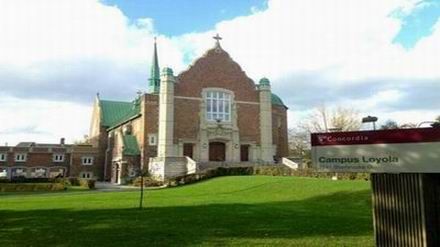If you’re hoping to study in Belgium, you may need to apply for a visa, depending on where you’re from and the length of your course. Find out if you need a student visa for Belgium, how to apply, and what documents you’ll be asked for.
What are the student visa requirements for Belgium?
To fulfill student visa requirements for Belgium, you’ll need to provide the following documents:
A completed and signed visa application form (you may need to bring more than one)
A passport or similar travel document valid for more than 12 months. In some countries it’s required for the passport to be no more than 10 years old, and have two empty consecutive pages facing each other.
Proof that you have sufficient financial income or support for the duration of your stay. This must cover your healthcare, living, study and accommodation costs as well as the cost of your return ticket. This can be in the form of a certificate stating you have received a grant or scholarship, an agreement of financial responsibility from your sponsor, or your personal bank statement showing sufficient funds.
A medical certificate stating you don’t carry any diseases that may endanger public health (such as TB, diseases that require quarantine and other infectious diseases)
A police certificate of good conduct confirming that you don’t have any prior convictions (if you are aged over 21). If you’re from the US, you’ll probably need an FBI background check, which can take up to five months to obtain.
Student visa requirements for Belgium also include proof of your student status and study plans. For this, you may need:
Proof of registration at a recognized higher education institution in Belgium (must cover a full-time course of study, suggesting that the candidate’s main activity in Belgium is studying)
Application for an equivalence certificate for a diploma or certificate conferred abroad (only required for French Community education)
Original and certified copy of your diploma, certificate or baccalaureate from your secondary education, and the academic record from your last year of secondary education
Copy of all diplomas and certificates obtained since the end of your secondary education
An employer’s statement underlining the necessary for you to pursue higher education as part of your work (more likely to apply to postgraduate students)
Documentation giving a brief description of the courses organized by your institution of choice, with a short explanation comparing those courses to courses organized in your country of origin
All documents in a language other than German, French, English or Dutch must be translated by a sworn translator, legalized as a separate document in your country of origin, and legalized again by the Belgian consulate or embassy you go to. Your consulate or embassy may ask for other documents not mentioned here, depending on your country of origin.
You will also need to provide a supporting letter explaining why you have chosen the particular course, why you have chosen to study in Belgium, and how your choices will benefit you. You must demonstrate that you have sufficient knowledge of the language in which you intend to study, by providing either proof of passing an internationally recognized language proficiency exam or a certificate issued at the end of education in your chosen language.
You can track your visa application using your reference number and the location of your chosen consulate or embassy. The Belgian consulate or embassy considers visa applications on a case-by-case basis and has the exclusive decision to accept or refuse your visa. You may appeal against this decision if you wish.
If the embassy or consulate you have applied to is unable to process your student visa application for some reason, they may suggest you apply for a tourist visa, which is easier for them to issue. If so, make sure they give you a written statement showing that they advised you to apply for a tourist visa, as this statement will allow you to exchange your tourist visa for a student visa once you’re in Belgium, and allow you to register at your chosen higher education institution.
Arrival in Belgium
All students (including those from the EU) must go to the local municipal administration within eight days of arrival in Belgium. You will then be issued with a residence permit which allows you to stay in Belgium and also allows you entrance to the Schengen States without a visa for a period not exceeding three months. You can apply to renew your residence permit yearly, approximately 30 to 45 days before its expiry date.
想了解更多比利时或其他国家留学资讯,请访问出国留学网www.liuxue86.com


